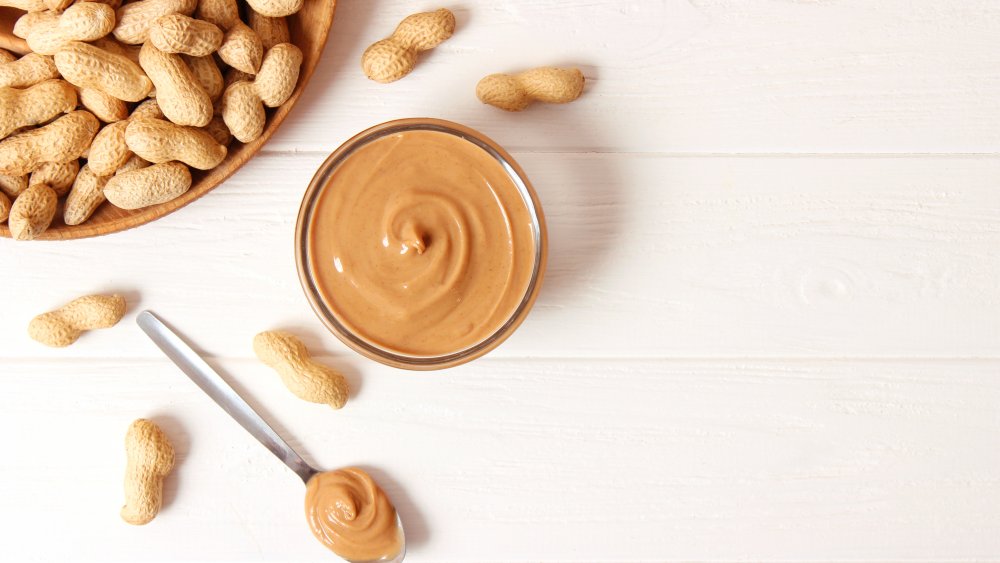This Could Change What You Think About Peanut Butter
Peanut butter is a deliciously versatile food. Since the invention of the peanut butter and jelly sandwich in 1901, it quickly became a lunchtime favorite and a staple in the American home (via National Peanut Board). It can be combined with foods to make sweet treats like peanut butter cups or healthy snacks like protein shakes. Even with all its enticing creations and combinations, eating it off a spoon is just as satisfying.
Unfortunately, this nut butter has been linked to health concerns. At the center of attention, due to its detrimental effects, is the peanut allergy. According to Princeton University, in the past 25 years, medical journals and the media have been describing this allergy as an epidemic. With a strong focus on the allergy, it's alarming that other health issues caused by peanut butter may go unnoticed. Nutrition author Mike Geary says eating too much peanut butter can lead to big health problems (via Nutrition Watchdog).
The health hazards of peanut butter
High fructose corn syrup and hydrogenated oils are added ingredients in many peanut butter brands, and Geary says they are "two of the most deadly additives in our food supply." Those hydrogenated oils (trans fats) are recognized as the worst types of fat you can eat. As per the Mayo Clinic, a diet loaded with these ingredients can increase your risk of developing heart disease.
Another troubling concern connected to peanuts may forever change your food pantry. The South Florida Sun-Sentinel reports a significant danger lurking in your peanut butter. Aflatoxin, a poison that stems from certain molds and grows on crops (peanuts), creates serious health risks, notably, an increased risk of developing liver cancer (via National Cancer Institute). The United States Food and Drug Administration has set limits on aflatoxins in peanuts and peanut butter, but the South Florida Sun-Sentinel says ingesting even a small amount is unacceptable.
Swapping your peanut butter for a healthier brand may help reduce your trans fat intake, but how do you address the harmful aflatoxins? If you're a peanut butter lover, it may be a good idea to gather more information before digging into your next jar.


